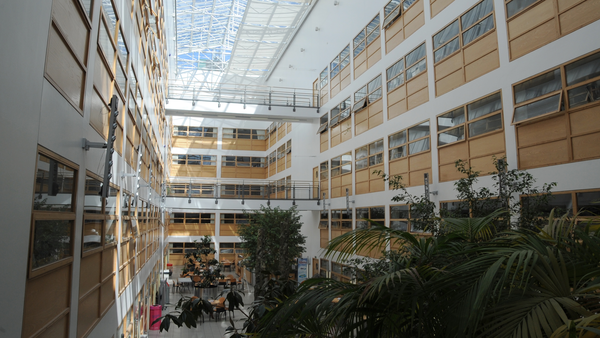Our BSc Biomedical Sciences programme offers a comprehensive journey through the fascinating world of human biology and disease processes. This four-year degree provides a carefully structured progression from foundational sciences to cutting-edge research. As you advance, you'll develop a deep understanding of biomedical principles, critical thinking skills, and research expertise. Each year builds upon the last, offering increasing specialisation and hands-on learning opportunities, preparing you for a thriving career in this dynamic field
In your first year, you'll build a strong foundation in the basic sciences, diving into chemistry, cell biology, and gaining an introduction to medical sciences. This groundwork prepares you for more advanced studies in subsequent years.
Moving into your second year, you'll deepen your knowledge of human physiology and molecular biology. You'll also develop essential research skills for medical sciences, equipping you with the tools to engage in scientific inquiry.
Your third year, known as Junior Honours, sees you engaging with advanced topics in biomedical sciences. You'll explore areas such as neuroscience and molecular cell function, with options to specialise in fields like anatomy or pharmacology. This year allows you to start tailoring your degree to your specific interests.
In your final year, Senior Honours, you'll have the opportunity to conduct independent research projects and study specialized topics that align with your career aspirations. Alternatively, you may choose to undertake an industrial placement, gaining valuable hands-on experience in a professional setting.
Throughout the programme, you'll have the flexibility to shape your degree through a range of optional courses and specialisation pathways, ensuring your education aligns with your personal and professional goals.
Enhance your degree with a year-long industry placement, graduating with an 5-year MSci degree in Biomedical Sciences after five years.



